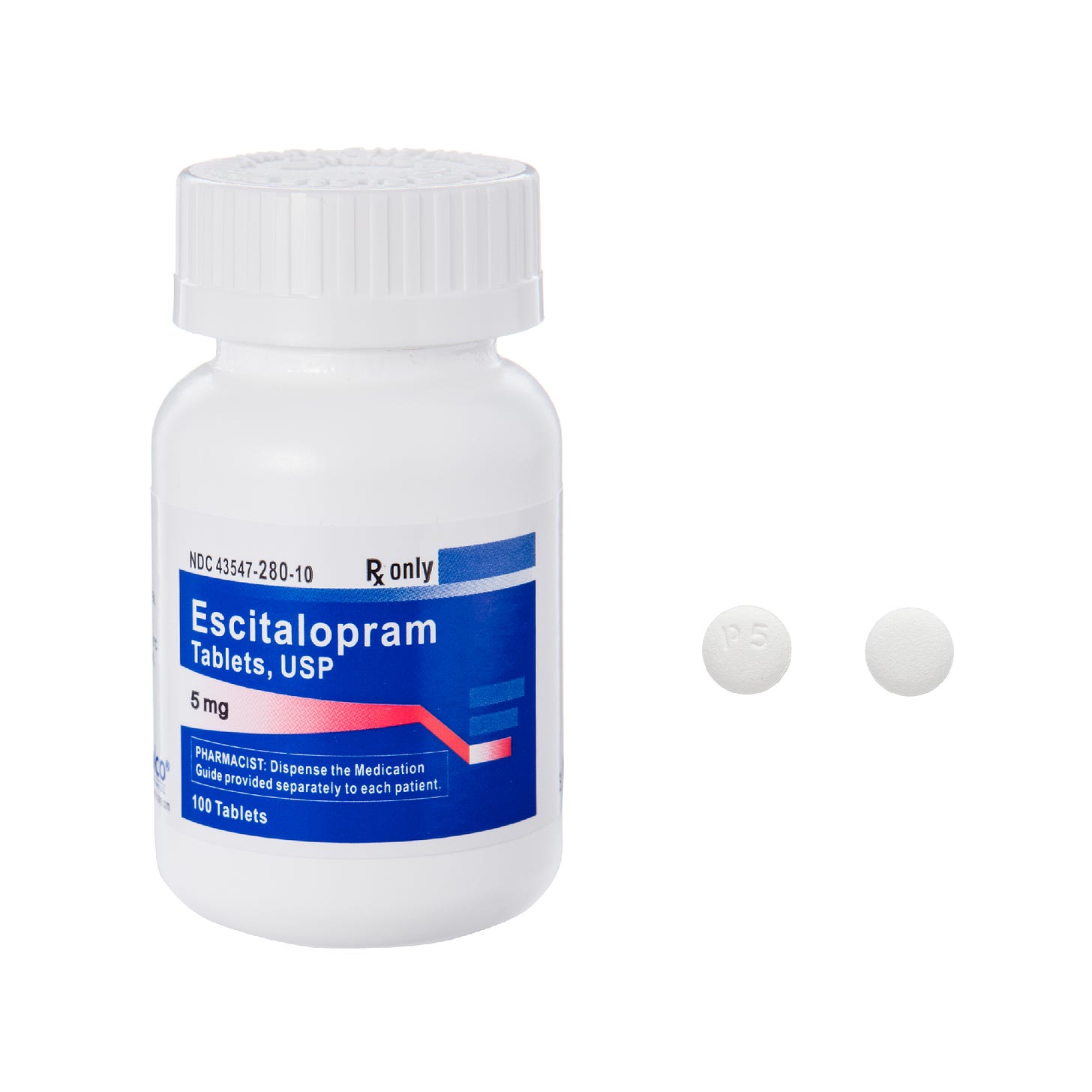Friday Hope: Escitalopram as a Possible Therapeutic for COVID/Long COVID and Spike Protein Endothelial Disease (SPED)
Those with Major Depressive Disorder Already Have a Compromised Endothelium. Escitalopram Mitigates the Damaged Endothelium – Particularly the Microvasculature.
A recent study (please see my previous post) has shown that those with Depression diagnosed before COVID run a significantly greater chance of developing Long COVID. Also, these are the very same people who have a doubled risk for hospitalization and death from COVID.
The researchers found strong evidence that people with preexisting mental health conditions face twice the risk of hospitalization or death from COVID-19 compared with other patients.
Those with psychotic and mood disorders, as well as people who had previously been treated with medications for anxiety, depression, and psychoses, were also among the groups most vulnerable to dying from COVID-19.
Mental Illness Doubles Risk of Death From COVID-19, Study Suggests
https://www.verywellmind.com/mental-illness-doubles-risk-of-covid-19-death-study-says-5194637
It is also well established that COVID is an Endothelial disease.
This essay explores the hypothesis that COVID-19, particularly in the later complicated stages, represents an endothelial disease. Cytokines, protein pro-inflammatory mediators, serve as key danger signals that shift endothelial functions from the homeostatic into the defensive mode. The endgame of COVID-19 usually involves a cytokine storm, a phlogistic phenomenon fed by well-understood positive feedback loops that govern cytokine production and overwhelm counter-regulatory mechanisms. The concept of COVID-19 as an endothelial disease provides a unifying pathophysiological picture of this raging infection, and also provides a framework for a rational treatment strategy at a time when we possess an indeed modest evidence base to guide our therapeutic attempts to confront this novel pandemic.
COVID-19 is, in the end, an endothelial disease
https://pubmed.ncbi.nlm.nih.gov/32882706/
Individuals who experience depression or who have mental illness develop a compromised Endothelium from the effects of their disorder.
Mental stress is an important factor contributing to recognized mechanisms underlying cardiovascular events. Among these, stress-related endothelial dysfunction is an early risk factor that predicts future development of severe cardiovascular disorders. Acute mental stress by a variety of tests impairs endothelial function in humans, although the opposite results have been reported by some investigators. Chronic stress always deteriorates endothelial function in humans and experimental animals. Stress hormones, such as glucocorticoids and pro-inflammatory cytokines, and endothelin-1 liberated in response to mental stress participate in endothelial dysfunction possibly via downregulation of endothelial nitric oxide synthase (eNOS) expression, eNOS inactivation, decreased nitric oxide (NO) actions, and increased NO degradation, together with vasoconstriction counteracting against NO-induced vasodilatation. Catecholamines do not directly affect endothelial function but impair its function when blood pressure elevation by the amines is sustained.
How mental stress affects endothelial function
https://pubmed.ncbi.nlm.nih.gov/21947555/
Therefore, it should come as no surprise that those with a condition that compromises the Endothelium should indeed fare far worse when confronted with an Endothelial disease.
However, there is a treatment for depression which has been observed to improve Endothelial function. That therapeutic is Escitalopram. Escitalopram is a Selective Serotonin Reuptake Inhibitor (SSRI). It is the S-enantiomer of citalopram and is the most selective of SSRIs. What is most interesting about Escitalopram is that it improves Endothelial function in those suffering from Depression.
The effect of Escitalopram appears to be greater on the MICROVASCULATURE! This is why I believe it should be trialed immediately for those with COVID, Long COVID and SPED.
Escitalopram treatment changes the balance between different pathways of endothelial relaxation.
The suppression of EDH-like response in CMS-susceptible rats was, in part, compensated by upregulation of endothelial NO-synthase (eNOS) (8). Treatment with escitalopram did not normalize the endothelium NO signaling, but other pathways of endothelium-dependent relaxation were affected by the treatment (Fig. 6). Therefore, it seems that the depression-associated increase of the NO pathway is caused by mechanisms that are unaffected by SSRI treatment. We found, however, that escitalopram treatment significantly potentiated the EDH-like component of relaxation and that this effect was most pronounced in escitalopram responders. The observed changes are in contrast to a previous report showing that SSRI (fluoxetine) treatment in mice improves NO-dependent relaxation and suppresses EDH-like relaxation in the aorta (38). These contradictory findings could be a consequence of vessel size. In fact, the contribution of NO to endothelium-dependent relaxation decreases with vessel diameter, while EDH exhibits an inverse pattern contributing to a small extent in large arteries.
Chronic selective serotonin reuptake inhibition modulates endothelial dysfunction and oxidative state in rat chronic mild stress model of depression
https://journals.physiology.org/doi/full/10.1152/ajpregu.00337.2014




Walter... Excellent find. Do you think fluvoxamine is similar in effect on microvasc and endothelium?
Yes, it has. I have been writing this for over two years.